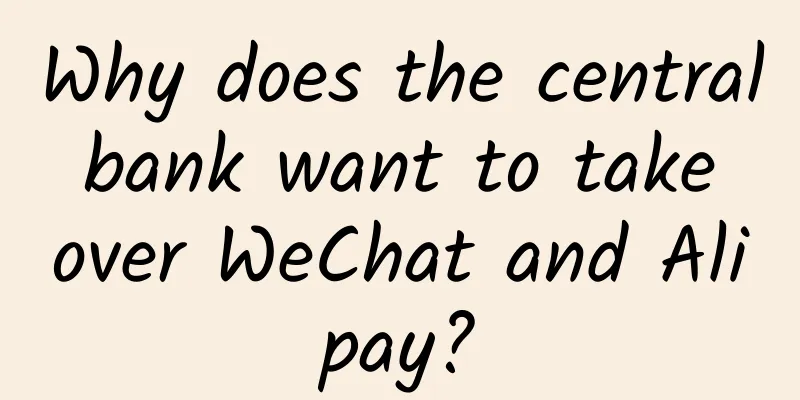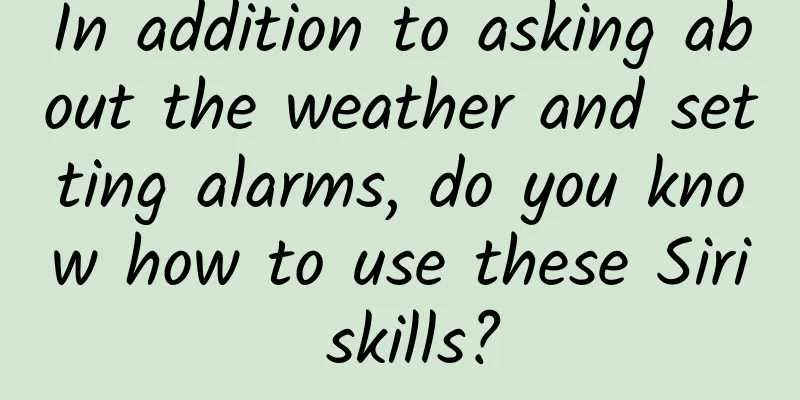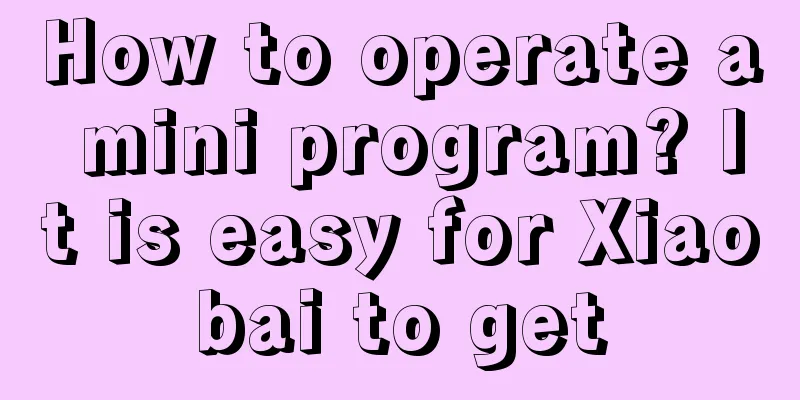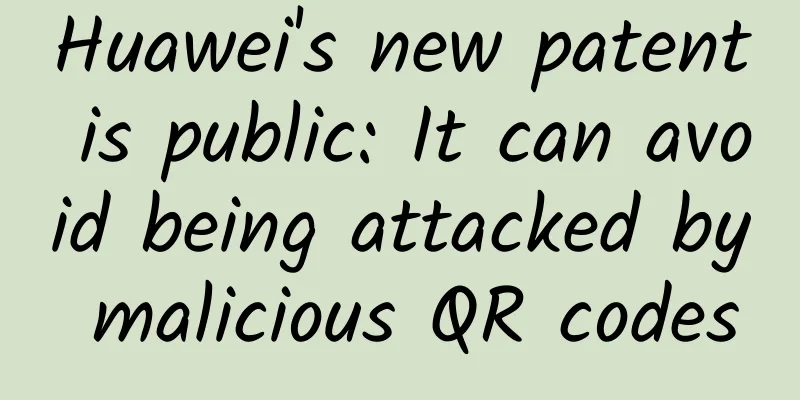Why does the central bank want to take over WeChat and Alipay?

|
Why does the central bank want to take over WeChat and Alipay? WeChat Pay and Alipay are both mobile payments, that is, cashless payments. Although cashless payments are convenient, they are not conducive to the central bank's regulation of the domestic macro-economy. As we all know, the central bank regulates and controls the development of the domestic economy by issuing paper currency and regulating the circulation of currency in the market. In other words, the central bank regulates the circulation of paper currency in the market by printing a large amount of money or tightening the money supply according to changes in the market economic environment, thereby controlling the lifeline of domestic economic development. If it is true that some people say that the future will be a cashless society, and now people are starting to use mobile payments, more and more people are joining the ranks of mobile payments - people are abandoning paper money, and the circulation of paper money in the market is also decreasing. If Alipay and WeChat Pay are not regulated and allowed to develop at will, the central bank's ability to control the domestic economy will be greatly weakened. If Alipay and WeChat Pay, as well as Yu'ebao and other non-bank mobile payments, develop at will, the central bank will gradually be sidelined and other banks will face bankruptcy. (Note: Non-bank mobile payments are neither from UnionPay nor from the banking system, but are mobile payment platforms developed by private companies.) The payment and transfer functions of WeChat Pay and Alipay can also provide convenience for some people to launder money through mobile payments. Therefore, this is also a major reason why WeChat Pay and Alipay were incorporated. Alipay and WeChat are very convenient mobile payment methods, but no matter you or I use mobile payment to receive or pay money, especially when receiving money, the money received seems to have entered your or my mobile payment account. In fact, as long as the money is not transferred to your or my bank card, but is saved in the third-party mobile payment platform (unable to withdraw cash), the money is just a few digits on the mobile payment client interface, while the real money is put into the pockets of certain companies and certain people, boosting their wealth and worth, and enabling them to compete for the position of the richest man in China. If non-bank mobile payments are allowed to develop recklessly, more financial oligarchs will inevitably be created. Mobile payments, to put it bluntly, provide new opportunities for others to make money (previously, people made money by issuing stocks). If mobile payments are not regulated, and various types of mobile payment apps emerge like mushrooms after rain, they may become an unstable factor that affects the healthy development of the market economy and even cause financial disorder. Now, except for Alipay and WeChat, as well as the mobile payment platforms launched by UnionPay and various banks, try not to use mobile payment apps on other platforms - be careful that someone uses mobile payment to make money. If you download a non-standard mobile payment app, bind your bank card, and deposit money on it - when everyone deposits money on the mobile payment platform, this mobile payment app is suddenly offline and closed, then it can cause you irreparable financial losses. WeChat Pay and Alipay are both large companies, and they will not go bankrupt for a while, but other non-bank mobile payment apps are hard to say. Well, that's all. Let's talk about some related topics: 1. Is mobile payment safe? Although the technology of security management is becoming more and more advanced, mobile payment still has certain risks. The biggest risk is losing the phone, followed by the leakage of payment passwords, and then Trojan viruses in the phone... Therefore, the first thing to do when using mobile payment is to keep your phone safe, remember your payment password and prevent it from being leaked, do not casually scan QR codes or open links on various chat interfaces, and do not use public Wi-Fi when using mobile payment, transfers, and online shopping... When using mobile payment, for example, when you go to the supermarket, after buying things and checking out, you don't take the initiative to scan the QR code, but let the salesperson scan the payment code on your phone, and then you check the payment amount and click OK - this payment method is relatively safe, safer than swiping a card (modified POS machines can steal card numbers and passwords). To be honest, I used to refuse mobile payment, but now I have started to use it. 2. Is it safe to keep money on mobile payment platforms? It can be said that it is relatively safe to keep money on Alipay (or Yu'ebao), and it is also OK to keep it on WeChat. I feel that Alipay is slightly more secure than WeChat - after all, Alipay accounts are more private. If you don't use Alipay to scan QR codes casually and don't disclose your Alipay account, ordinary people can't guess your Alipay account; WeChat is different. No matter strangers or familiar people, they can add you as a friend, and then everyone can send you links, fake red envelopes and pictures with QR codes, and you may be tricked as soon as you open them. Therefore, the security of WeChat is slightly lower than that of Alipay. However, no matter WeChat or Alipay, you need to set a security password - either a numeric password or a gesture password, to improve the security of your account and maintain the safety of your funds and property. 3. Is it safe to deposit money in a bank? Depositing money in a bank is not 100% safe. When depositing money at a bank counter, you must be careful whether the money is deposited into your personal account or becomes insurance (you must be careful to avoid the deposit becoming insurance amount without knowing it). When using a bank ATM to deposit or withdraw money, be sure to check whether there are any suspicious stickers on the ATM, and be careful to cover it when entering the password. You should also keep your bank card safe at ordinary times, and never put your bank card and ID card together. In fact, when you deposit money in a bank, especially a large amount of money, the money will become a few digits in the passbook and card, and the real money will be used by the bank to cash out other depositors or issue loans. And banks are not iron-clad camps, and there is a possibility of bankruptcy - so don't deposit a large amount of money in one bank (don't put all your eggs in one basket). In addition, depositing money in a state-owned bank is a little safer than depositing it in a private bank or a local bank. Why are there so many local banks? Walking in the busy streets of the city, you will find that there are many local banks (banks named after places other than the city) on the street. Why are there so many foreign banks? Because the development of cities in various places requires a lot of financial support, and opening banks in other regions can help the development and construction of cities to absorb funds (that is, financing). Some cities, due to the large-scale urban construction, inevitably have tight local finances or fiscal deficits, and by opening banks in other provinces and cities, they can absorb a large amount of funds to ease the financial pressure or fill the funding gap. Although the interest rates of some local banks are slightly higher, I still trust state-owned banks when it comes to depositing money. This article is just some superficial personal opinion. |
<<: Why do Emoji look different on different platforms?
>>: When there is only one Java programmer left in the world
Recommend
Can Zhengzhou be unsealed on May 10, 2022? When will the ban be lifted? Attached is the latest news on the epidemic
This round of local epidemic in Zhengzhou was dis...
How to plan the core selling point of a product: 5 universal formulas
How to plan the selling points of a product and m...
How does the gaming industry advertise on Weibo?
How to correctly direct traffic during the promot...
WeChat officially responded to when to launch the "clean fans" function: the decision is left to the users and there will be no such function in the future
Added but never spoke, this is a true reflection ...
Tesla recalls 53,000 vehicles to replace electronic parking brakes
Tesla recently announced that it will recall 53,0...
Pikas are cute and you want to pet them? But they might kill you
In the past two days, a group of travel photos on...
Decrypting “User Uninstall”! 3 data points worth paying attention to!
Do you want users to use your app for a long time...
SEO order-taking platform, what is the order-taking process for SEO outsourcing services?
Many people who are good at SEO like to provide S...
What will happen to the natural world when humans disappear?
Leviathan Press: Rather than going against our in...
How to choose Android architecture mode
1. Introduction I have to sigh that the architect...
The basic framework logic of social e-commerce traffic generation
Today, I will talk to you about the basic framewo...
Chinese Army at CES: Innovation gap still exists Shenzhen companies 469
"Now if you don't go to the US to attend...
Flip phones are still being released in 2022? Why is Japan so popular in the manufacturing industry?
Recently, Japanese telecommunications company KDD...
What is the refraction of light? Why does light bend downward when it enters water, while chopsticks in water bend upward?
Many people have this question. The explanation i...









